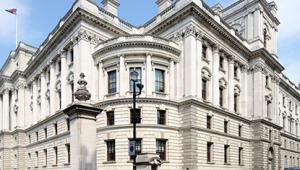Economists at the Resolution Foundation have rubbished Sajid Javid’s claims that spending promises can be kept whilst holding public sector net borrowing below 2% of GDP - a target the government imposed on itself in the last Budget.
Pledges to increase spending on police, infrastructure, prisons, education and more come to roughly £6bn, according to the Foundation, eclipsing the likely fiscal headroom of £4bn.
These pledges and any others the chancellor announces as part of the Spending Round next Wednesday will breach the ‘fiscal mandate’ of keeping borrowing at less than 2% of GDP, the think-tank has said. Although, a spokesperson at the Resolution Foundation explained to PF it could not yet work out what the exact borrowing level will be because the money had not yet been spent.
Some of Boris Johnson’s pledges have already come in for criticism, especially those around the criminal justice system, which were branded a “monumental waste of money”.
The most recent forecast from the Office for Budget Responsibility in March estimated fiscal headroom would be at £14bn.
But “shifts to the fiscal and economic outlook” since the forecast mean the “realistic estimate” would be closer to £4bn, the think-tank said.
The analysis comes after Javid told The Telegraph newspaper: “Next week’s Spending Round will be delivered within the current fiscal rules”.
Economists at the think-tank noted that next week’s Spending Round could be the first one since 2007 to include overall departmental spend rising faster than inflation.
Continuation of higher borrowing – as witnessed in the first four months of 2019-20 – could conservatively mean borrowing in 2020-21 being around £5bn higher than the OBR predicted back in March, the Foundation estimated.
Torsten Bell, chief executive of the Resolution Foundation, said: “Next week’s Spending Round will mark the end of a decade of spending cuts that have dominated political and economic debates. With the deficit now at a 17-year low, the chancellor can clearly afford to borrow more to spend on public services.
“But it is far less clear that he can afford to undermine economic credibility by professing to be bound by fiscal rules that are likely to be inconsistent with the scale of spending rises and tax cuts being planned.”
Javid’s claim that he can adhere to Philip Hammond’s so-called fiscal mandate is “more complicated” than he suggests, said Dan Tomlinson, policy analyst at the think-tank.
He added: “The £14bn headroom the chancellor intends to spend has already been reduced to around £4bn by changes to the fiscal and economic outlook.
“What remains is likely to be more than exhausted by existing prime ministerial spending commitments, even before any further increases are announced in next week’s Spending Round.”
Boris Johnson wrote this week to MPs saying he was suspending parliament from 9 September to 14 October. Johnson has said a Queen’s Speech is planned for 14 October and that it would reveal an “exciting agenda”.
The Treasury has been approached for comment.











